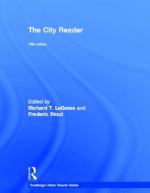
|
| Name: _________________________ | Period: ___________________ |
This quiz consists of 5 multiple choice and 5 short answer questions through Part I: The Evolution of Cities.
Multiple Choice Questions
1. Who wrote the article "The Urbanization of the Human Population"?
(a) Raymond Mohl.
(b) Kingsley Davis.
(c) Kevin Lynch.
(d) William Julius Wilson.
2. When was "The Polis" first published?
(a) 1949.
(b) 1951.
(c) 1952.
(d) 1947.
3. In "How to Study Cities," LeGates writes that the borderlines between the objects of study, methods, theory and work product of different disciplines are what?
(a) Clearly drawn.
(b) Vastly different.
(c) Fuzzy.
(d) Unimaginable.
4. What urban sociologist did extensive field research in Black ghettos of Chicago?
(a) William Julius Wilson.
(b) Kevin Lynch.
(c) Lewis Mumford.
(d) John Reps.
5. Who was a Moroccan Berber Islamic scholar and traveller who is known for the account of his travels and excursions called the Rihla?
(a) Ibn Battuta.
(b) Henri Pirenne.
(c) Bernal Diaz.
(d) H.D.F. Kitto.
Short Answer Questions
1. Who is the author of "The Negro Problems of Philadelphia"?
2. What examples of cities and civilizations from the Stone era does V. Gordon Childe describe in "The Urban Revolution"?
3. Who wrote "The Drive-In Culture of Contemporary America"?
4. When was the Second Edition of The City Reader published in an expanded version?
5. What research method involves the analysis of statistical data?
|
This section contains 215 words (approx. 1 page at 300 words per page) |

|




